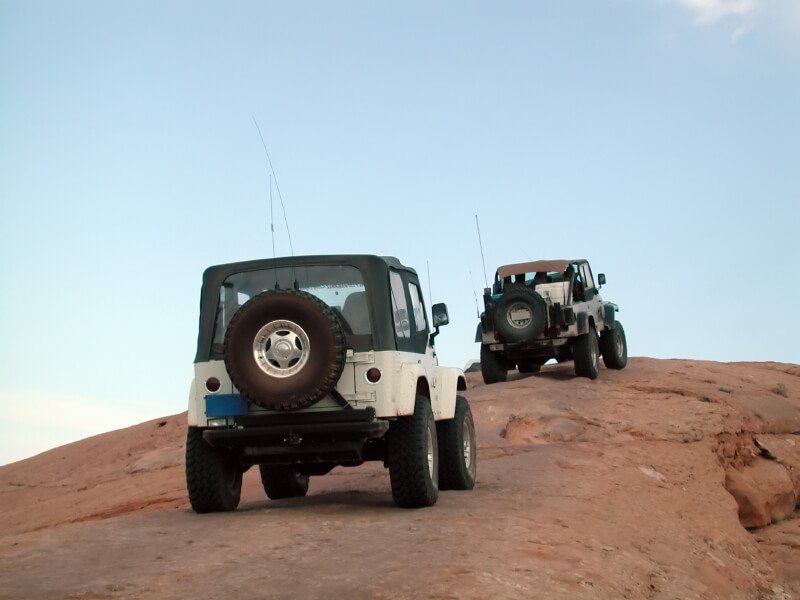Just because you have a 4×4 doesn’t mean you’re invincible, and thinking you are is perhaps the rookiest and costliest mistake you could make. In fact, this tends to be a beginner’s universal mark regardless of the category – pretending not to be one.
But while in other safer fields, like tennis, for example, the worst that could happen is becoming a laughing stock, when it comes to off-road driving, the worst-case scenario is no laughing matter.
So if you’re a beginner to off-road driving, own up to it without shame and read on these essential tips Manuals has put together to keep you safe out there.
Get to Know Your Vehicle on Regular Roads
Even more so than regular cars, 4x4s take some time to get used to. You need to drive around in regular circumstances to get a good feel for your vehicle’s dimensions and its mechanics before taking it on a ride on which every inch and maneuver count.
Pre-Trip
Inspection
Going on any long trip should start with a thorough inspection of your vehicle, but when it comes to off-road adventures, this has to be a law, instilled into your very psyche.
Besides the classic components that have to at least be looked over before any kind of trip with any kind of car, here are some of the essential things to inspect before an off-road journey.
Fluids
Your fluids have to be in proper condition. You need to check your oil, your coolants have to adhere to your car manufacturer’s guidelines, found in the manual, the windshield washer fluids need to be topped off. Last but not least, scour your vehicle for any leaks, spills, and broken hoses.
Tires
Your tires must also adhere to the recommended inflation levels. Speaking of tires, don’t forget the spare one.
Weight Distribution
Balance is everything in off-road scenarios, and anything that can throw it off should be paid extra attention, especially considering that such journeys require more luggage than regular trips, as we’ll explain below.
You need to distribute your load as evenly as possible. The more weight behind the rear axle, the lower the rear of your car will sag, and respectively the less clearance you’ll have. Any loads on your roof rack need to also be evenly distributed.
Preparation
Make Your Whereabouts Known
This is one of the most important unwritten rules of off-road trips, one that no amount of experience can overrule. With the risk of sounding ominous, on drives like these, anything can happen. It’s crucial that someone you trust knows the route you’re taking, and when you’re planning to finish it. If by a certain deadline, you haven’t checked in, that person should start looking for you.
Even if you’re “simply” stuck, on the roads less traveled, that can seem like being stranded on a deserted island after a while.
Stock up on Supplies
In the spirit of preparing for the worse, if you do happen to get stuck, you should have plenty of supplies to keep you going. This means food, water, warm clothes, medication, etc.
Driving
Water-Crossing
A 4×4 isn’t a Batmobile, and it can’t convert into a Batboat. Unless you are completely sure that a stream, or a mud puddle, or anything of the sort, is shallow enough for you to drive through, you should first check it out first-hand with a stick or something similar.
Snowmelt can be particularly deceptive that way. Just because you might be able to cross a shallow stream, coming from snowfall, in the morning, before the sun has started to take effect, doesn’t mean you’ll be able to cross it in the afternoon.
Another thing to keep in mind when water-crossing is that being too cautious can paradoxically harm you, meaning you shouldn’t go too slow, let alone stop, or you might not be able to continue at all.
Beware of Ruts
While you want to make use of the road paved before you, beware of ruts that are basically mud puddles that haven’t yet reached their final form.
Etiquette on Steep Roads
Remember, the car going uphill always has the right of way.
“4×4 Required” Signs
Those signs usually mean that not only a 4×4 is required, but someone experienced in driving them behind the wheel, and since we established that you’re a beginner, you should stay clear of such roads as much as possible.
Following these simple, but important tips will not only make your off-road experience safer, but more enjoyable as well.











